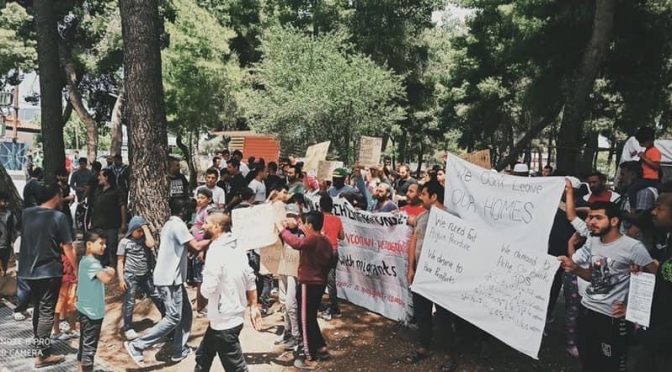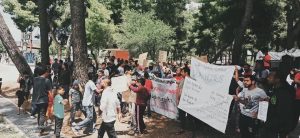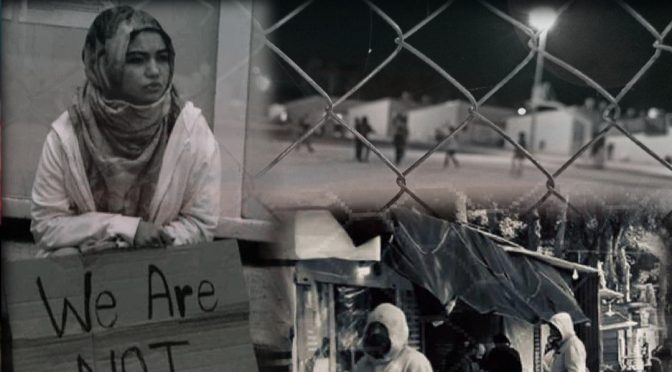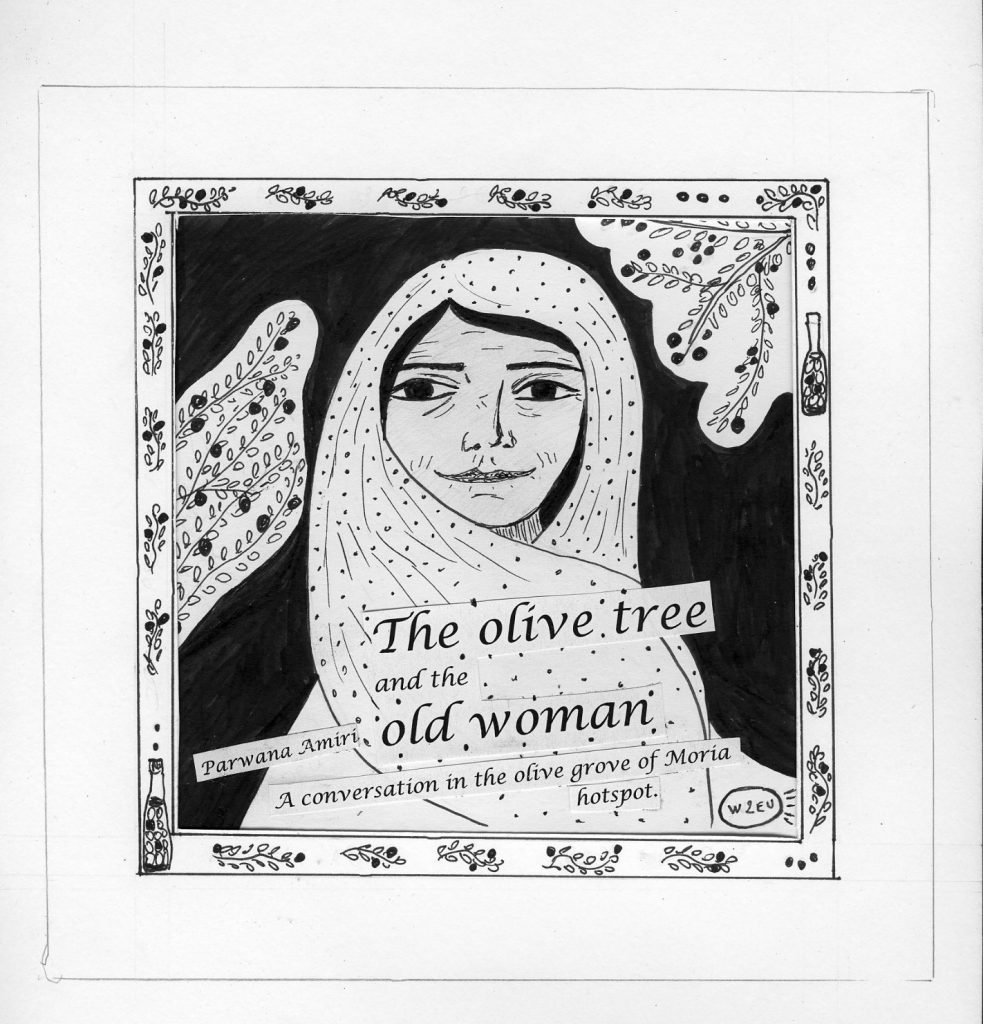ART WORKS made by refugee young women living in the Camp Ritsona, are exhibited in the Town hall of the city of Chalkida.
Although the young people finally are aloud to join the Greek school in Chalkida, there is no bus or other transport for them to get over the 8 kilometers distance between the camp and the city of Chalkida. So they unfortunately, although they have the right to go to school, are obliged to stay in the camp.
Painting, drawing, writing poems and other creative ways are their expression of their feelings and the comments of their situation.
We wish all of them to be fast part of the Greek society and live among the Greek people or enjoy their freedom of movement.
They should follow their art, that from now on, is traveling around the world not being stopped by any kind of borders or walls.
Fariba
Hi, I am Fariba Amiri , 15 years old from Afghanistan living in Greece , Ritsona refugee camp. After spending one and a half year in Greece I am able to go to a school, but the situation about the buses are difficult on all the students in my age. There is no bus for transferring us to school. It is 8 kilometers far from here.
That’s why we haven’t gone to school from when it started untill now. I have started painting 10 months ago and I was doing it mandala art
The painting and drawing give me a calm feelings, my stress goes on doing mandala, and i enjoy during painting about different things.
The festival is in Chalkida in friday and Saturday they gave the artists of refugees in Ritsona, a chance to participate and show their arts in the exhibition for people. All of the artists in our camp joined in this festival. I have different plans and dreams about my future, definitely one of them is to become the best football player as I am a player right now. And beside of that to improve my art and continue my lessons.
Thanks for everything:)









